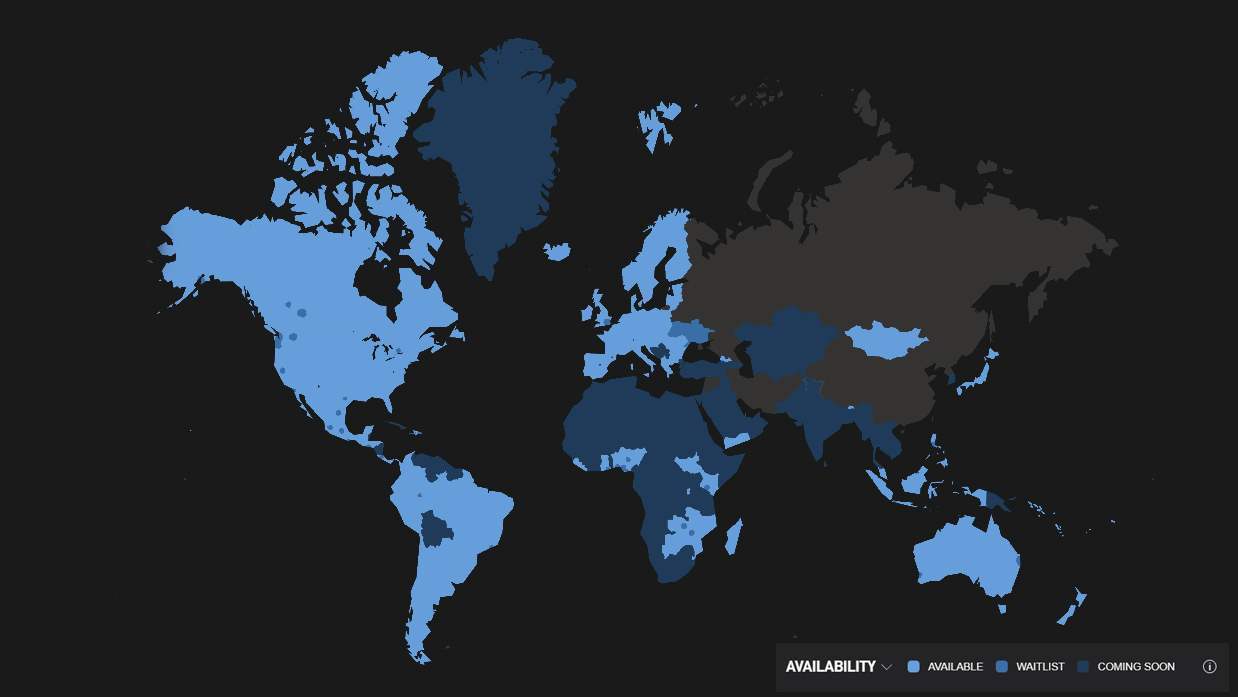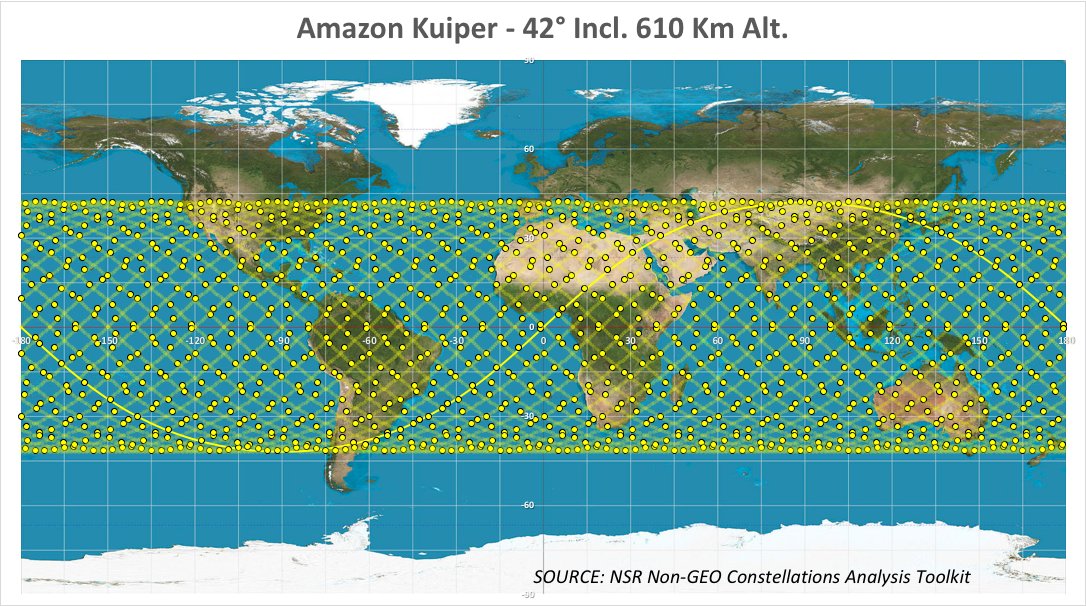China's rival to Elon Musk’s Starlink has the potential to challenge its reach by 2030, says report
Deployment of the Chinese SpaceSail network will raise internet security and censorship concerns around the world.

Elon Musk's Starlink is facing growing competition from China’s state-backed satellite internet initiatives and Amazon’s Project Kuiper, intensifying the race for dominance in space-based connectivity. As China rapidly develops its low-Earth orbit (LEO) satellite network, concerns are emerging over potential data security risks.
Shanghai-based SpaceSail, one of China’s leading satellite internet companies, is aggressively expanding into international markets. According to a report by Reuters, the company has signed agreements to provide services in Brazil and Kazakhstan, with discussions underway in more than 30 other countries. SpaceSail aims to deploy 648 LEO satellites this year and expand to a total of 15,000 by 2030, potentially rivaling Starlink’s global reach. It is claimed that the company has state-backed funding from Shanghai Spacecom Satellite Technology (SSST).
Amazon's Project Kuiper, led by Jeff Bezos, is also entering the satellite broadband industry, with a projected investment of $16 billion. The project is expected to spend up to $3.5 billion on satellite launches by 2025, aiming to provide widespread internet access and integrate with Amazon Web Services (AWS). However, Project Kuiper faces an uphill battle against Starlink, which already has a strong market presence and brand recognition.

As of February 2025, Starlink, operated by SpaceX, has established a significant global presence. It offers satellite internet services in over 100 countries, including the United States, the United Kingdom, and various nations across Europe, South America, and Asia.

In contrast, Amazon's Project Kuiper is still in the developmental phase. The initiative plans to deploy its first production satellites in early 2025, to commence broadband services later in the year. While specific service regions have not been officially announced, Amazon aims to deliver high-speed, low-latency broadband to unserved and underserved communities worldwide.
China’s rapid satellite expansion raises concerns about potential data security risks, echoing past controversies. Western governments previously flagged Huawei’s telecom infrastructure as a potential cybersecurity threat, leading to bans and restrictions in multiple countries. Similarly, TikTok has faced scrutiny over alleged data-sharing practices with the Chinese government.
Unlike commercial competitors, Chinese internet providers operate under strict government oversight, which could enable Beijing to exert control over global communications infrastructure. This also raises questions about whether data transmitted via Chinese satellites could be accessed or monitored by authorities, potentially compromising user privacy.
Stay On the Cutting Edge: Get the Tom's Hardware Newsletter
Get Tom's Hardware's best news and in-depth reviews, straight to your inbox.
As competition in satellite internet heats up, data security and geopolitical risks will become central issues in the industry. The expansion of Chinese satellite services could lead to further scrutiny from Western governments, especially as more nations adopt LEO-based connectivity solutions.

Kunal Khullar is a contributing writer at Tom’s Hardware. He is a long time technology journalist and reviewer specializing in PC components and peripherals, and welcomes any and every question around building a PC.
-
Elusive Ruse I have been a customer for almost a year and I got to say the connection reliability is impressive, don’t remember the last time there was an outage even briefly. On the other hand the connection speed is much lower than what they charge me monthly compared to what I was paying for a 1GB connection in the city. The router that came with the kit is also subpar I think it’s wifi 5 and needs a separate adapter for an ethernet connection.Reply -
Notton So you're saying we're looking at a potential 45,000 mini satellites in LEO with an approximate life expectancy of 5-7 years?Reply
That's about 700 sent up and 700 that burn up per year, per company,
Each mini satellite weighs around 230 to 600kg. -
Blastomonas Naturally this supplier won't be trusted in the West and will be banned from government infrastructure.Reply
The biggest concern for me is the waste.. Unless we can solve that problem, we're in big trouble. -
GenericUser2001 Reply
The waste issue seems pretty manageable to me. Lets say we end up with 100,000 satellites from different groups in LEO; lets also say those sats are 1000 kg each, so that ends up being 100,000 metric tons in orbit. If they last 5 years that means sending up 20,000 metric tons a year & the same mass being burnt up. That is honestly pretty trivial in the grand scheme of things. That's far less than the mass that gets lost to sea every year in ship wrecks. Its also a rounding error compared to say aluminum production (70 million metric tons a year or so).Blastomonas said:Naturally this supplier won't be trusted in the West and will be banned from government infrastructure.
The biggest concern for me is the waste.. Unless we can solve that problem, we're in big trouble. -
Inveticus Reply
If you mean the US with the West, you're probably right. Europe will probably prefer a more reliable partner like China. Both the US and China can't be trusted due to their spy programs. But at least China never screwed over it's trade partners.Blastomonas said:Naturally this supplier won't be trusted in the West and will be banned from government infrastructure.
The biggest concern for me is the waste.. Unless we can solve that problem, we're in big trouble. -
bit_user Kessler Syndrome in 3... 2... 1...Reply
An axonometric view displays various Earth orbits, illustrating space debris and active satellites. -
GenericUser2001 Kessler syndrome is a non-issue for the very low orbits these sorts of internet satellites are going into; without active boosting any debris or non-functional part gets dragged down with a few years at most.Reply -
bit_user Reply
How can we be sure it won't fling some debris into higher orbits, though? And if it gets bad enough, could it jeopardize access to higher orbits?GenericUser2001 said:Kessler syndrome is a non-issue for the very low orbits these sorts of internet satellites are going into; without active boosting any debris or non-functional part gets dragged down with a few years at most. -
Blastomonas This was my concern. There is already quite a lot of debris up there. We could scupper our access to the solar system before we have even really started exploration of it.Reply -
bit_user Reply
Without getting political, let's just say not everyone would agree with that statement.Inveticus said:at least China never screwed over it's trade partners.